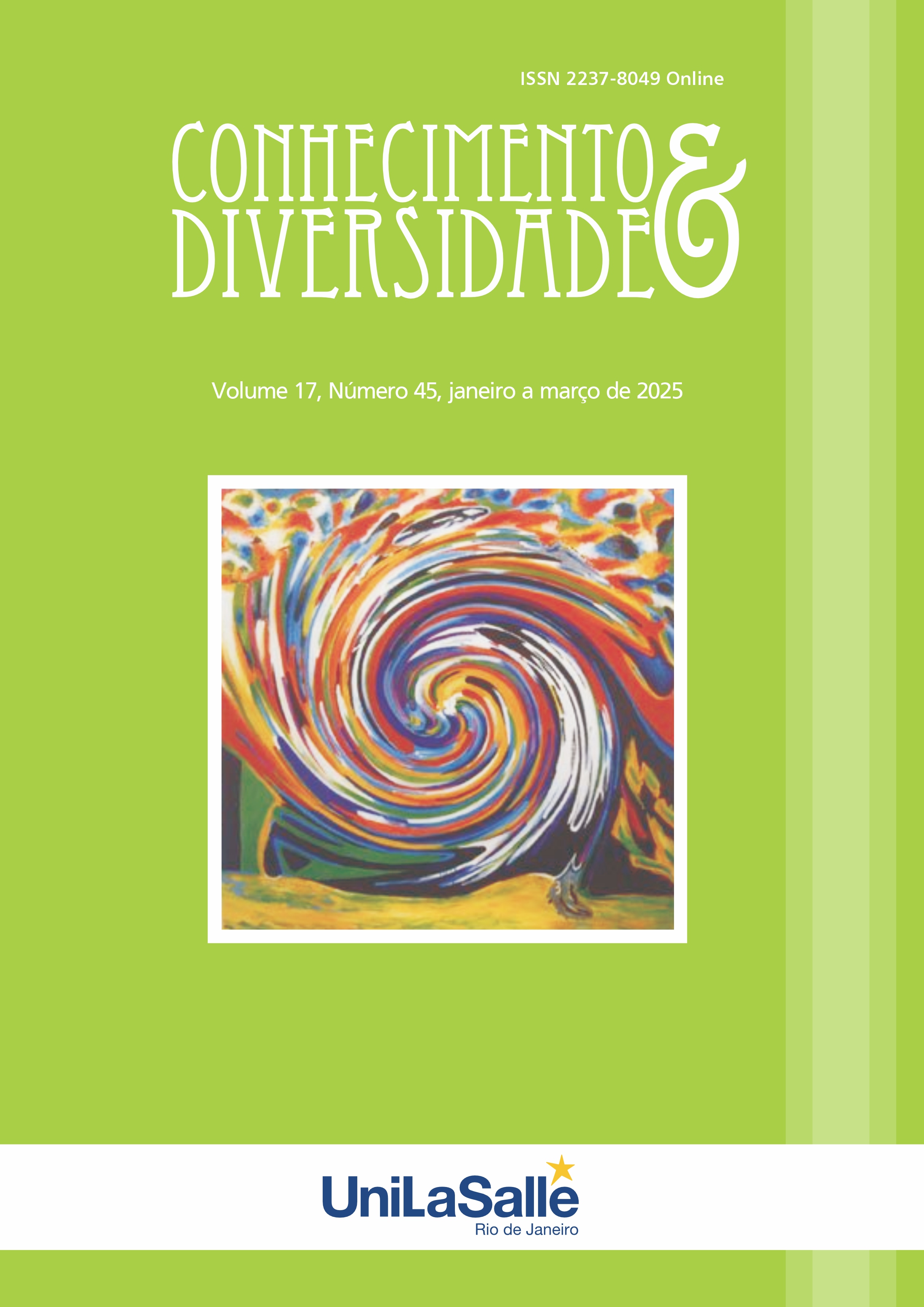PROJECT-BASED TEACHING
APPLYING INNOVATIONS TO THE TEACHING PROCESS
DOI:
https://doi.org/10.18316/rcd.v17i45.12455Palabras clave:
Project-based teaching, innovative educational methods, active learning, critical thinking, educational innovationsResumen
The paper aims to provide a comprehensive view of project teaching as an innovative element of the educational process and analyse its practical applications in the school environment. The research was carried out through a comparative study, in which the results of two groups of secondary school students were compared - one that learned through project-based learning and the other that used traditional methods. The results showed that students in the experimental group achieved a higher understanding of the curriculum, better academic results, and a higher motivation to learn compared to the control group. Additionally, project-based learning significantly contributed to developing soft skills such as teamwork, problem-solving, and self-assessment. Despite its many advantages, research identified challenges in implementing this method, such as being time-consuming, the need for methodological support for teachers, and varying levels of student engagement. It is necessary to ensure systematic support for teaching staff and expand the use of digital technologies in project-based learning. The findings indicate that project-based learning represents a promising direction in education that can contribute to modernising school curricula and improving the quality of teaching. Its wider application can help prepare students for the challenges of the 21st century and support their creativity, independence, and adaptability to dynamic changes in society.
Citas
Azizi, B. (2017). The Study of Relationship between Organizational Learning and Organizational Performance. Revista Administracao Em Dialogo, 19(1), 164-172. https://doi.org/10.20946/rad.v19i1.32657
Bakhshalipour, V., Khodaparast, S., Azizi, B., & Kalashi, M. (2023). Relationship Between the Components of Information and Communication Technology with Organizational Agility from View Point of Physical Education Professors. Cadernos Educacao Tecnologia E Sociedade, 16(4), 799-815. https://doi.org/10.14571/brajets.v16.n4.799-815
Blasko, M. (2013). Moderne metody vyucovania a ich aplikacia v pedagogickej praxi. Bratislava: Wolters Kluwer.
Cannistra, M., Agasisti, T., Amagir, A., Poder, K., Holz, O., Vartiak, L., & De Witte, K. (2022). A comparative analysis of financial literacy levels and initiatives among students in five European countries. Research in Comparative and International Education, 17(2), 246–280. https://doi.org/10.1177/17454999211066183
Cannistra, M., De Beckker, K., Agasisti, T., Amagir, A., Poder, K., Vartiak, L., & De Witte, K. (2024). The impact of an online game-based financial education course: Multi-country experimental evidence. Journal of Comparative Economics, 52(4), 825–847. https://doi.org/10.1016/j.jce.2024.03.001
Dewey, J. (1916). Democracy and Education: An Introduction to the Philosophy of Education. The Macmillan Company.
Dori, Y. J., & Belcher, J. (2021). How does technology-enabled active learning affect undergraduate students' understanding of electromagnetism concepts? The Journal of the Learning Sciences, 14(2), 243-279. https://doi.org/10.1207/s15327809jls1402_3
Dunleavy, M., & Dede, C. (2021). Augmented reality teaching and learning. In J. M. Spector, M. D. Merrill, J. Elen, & M. J. Bishop (Eds.), Handbook of Research on Educational Communications and Technology (Pp. 735–745). Springer. Https://Doi.Org/10.1007/978-1-4614-3185-5_59
Frey, K. (1984). Die Projektmethode: Eine Einfuhrung In Die Praxis Des Projektorientierten Unterrichts. Beltz Verlag.
Graham, M., Zook, M., & Boulton, A. (2021). Augmented Reality In Urban Places: Contested Content and The Duplicity Of Code. Transactions of the Institute of British Geographers, 38(3), 464-479. Https://Doi.Org/10.1111/J.1475-5661.2012.00539.X
Jaseckova, G., Konvit, M., & Vartiak, L. (2022). Vernadsky's Concept of The Noosphere and Its Reflection In Ethical And Moral Values Of Society. History Of Science and Technology, 12(2), 231–248. Https://Doi.Org/10.32703/2415-7422-2022-12-2-231-248
Kalhous, Z., & Obst, O. (2002). Skolni Didaktika. Portal.
Kasikova, H. (2001). Kooperativni Uceni, Kooperativni Skola. Portal.
Kilpatrick, W. H. (1935). The Project Method: The Use of The Purposeful Act In The Educative Process. Teachers College, Columbia University.
Konvit, M., Jaseckova, G., & Vartiak, L. (2024). A Contemporary View of The Planetary Oikos Through the Prism of Technology and Management. Meta-Research In Hermeneutics Phenomenology And Practical Philosophy, 15(2), 367-386.
Kosova, B. (1996). Konstruktivizmus V Edukacnej Praxi. Bratislava: Pedagogicka Fakulta UK.
Magalhaes, A. V., & Menegat, J. (2024). From Transactional Distance to Distance Education of Our Time. Conhecimento & Diversidade, 16(41), 376-401.
Manak, J., & Svec, V. (2003). Cesty Pedagogickeho Poznani. Brno: Paido.
Manikutty, G., Sasidharan, S., & Rao, B. (2022). Driving Innovation Through Project-Based Learning: A Pre-University STEAM For Social Good Initiative. Arxiv Preprint Arxiv:2211.01998. Https://Doi.Org/10.48550/Arxiv.2211.01998
Mocarzel, M. M. V., & Pereira, C. D. (2016). Revolution, Entertainment and Youth In "The Hunger Games": From the Cultural and Media Representations to The Metaphors of Contemporaneity. Conhecimento & Diversidade, 8(15), 85-99. Https://Doi.Org/10.18316/2237-8049.2016.8
Orbanova, D., & Velichova, D. (2012). Projektove Vyucovanie V Kontexte Rozvoja Digitalnych Zrucnosti. Bratislava: Pedagogicky Ustav.
Salles, S. D. S., & Bentes, H. H. S. (2012). Frontiers of Recognition: Educating Oneself as an Foreigner From The Perspective Of Paul Ricoeur. CONHECIMENTO & DIVERSIDADE, 4(8), 76-92.
Sarmento, D. F., Menegat, J., & Seniw, R. M. (2016). Educational Quality and Management. Training, Research and Management Practices. Revista Iberoamericana De Educacion, 70, 43-64.
Solarova, E. (2003). Inovativne Vyucovacie Metody V Sucasnej Skole. Kosice: UPJS.
Turek, I. (2008). Vzdelavanie Pre 21. Storocie. Bratislava: Wolters Kluwer.
Vartiak, L. (2015). Achieving Excellence In Projects. Procedia Economics and Finance, 26, 292–299. Https://Doi.Org/10.1016/S2212-5671(15)00855-2
Vartiak, L., & Garbarova, M. (2024). Key Performance Indicators for The Creative Industry. Baltic Journal Of Economic Studies, 10(2), 14-23. Https://Doi.Org/ 10.30525/2256-0742/2024-10-2-14-23
Descargas
Publicado
Número
Sección
Licencia
Derechos de autor 2025 Jens Weber, Marc Weber, Rafael P. Humpert, Bianca Triebel, Caroline Kigira, Harald Behrschmidt

Esta obra está bajo una licencia internacional Creative Commons Atribución 4.0.
Tal como recomienda el Public Knowledge Project, RCD adopta para sus artículos una licencia CREATIVE COMMONS: Attribution CC BY 4.0
Esta licencia permite que otros distribuyan, remezclen, adapten y desarrollen su obra, incluso con fines comerciales, siempre que le atribuyan a usted el mérito de la creación original.
Esta es la licencia más adecuada que se ofrece.
Recomendado para la máxima difusión y utilización de los materiales bajo licencia.



